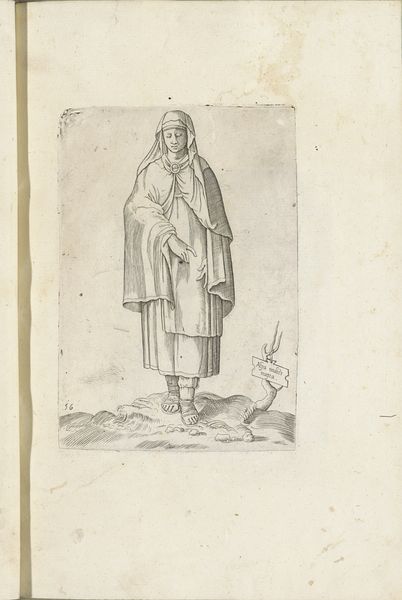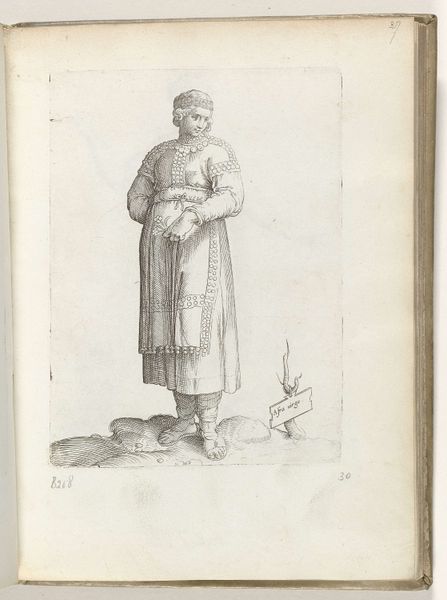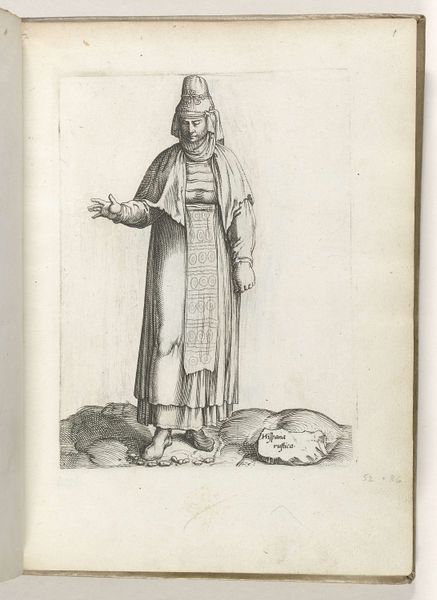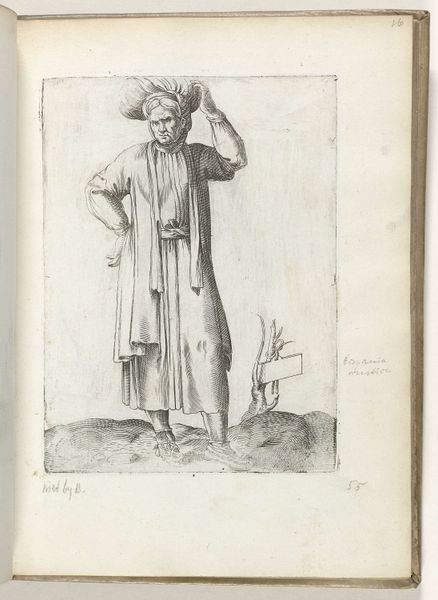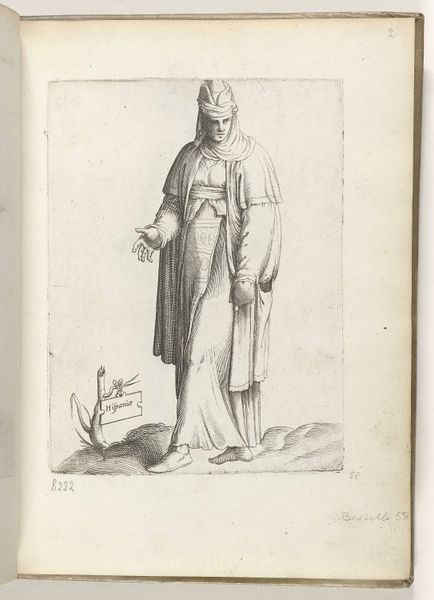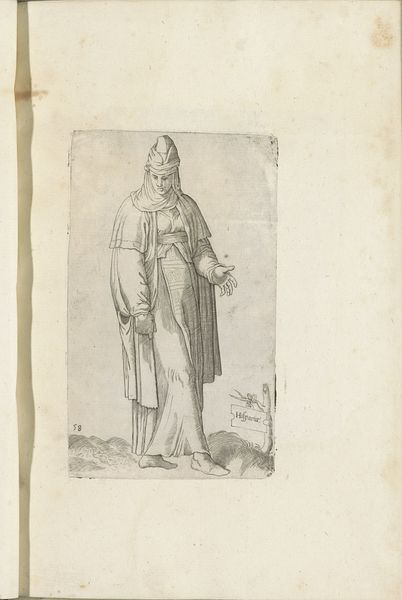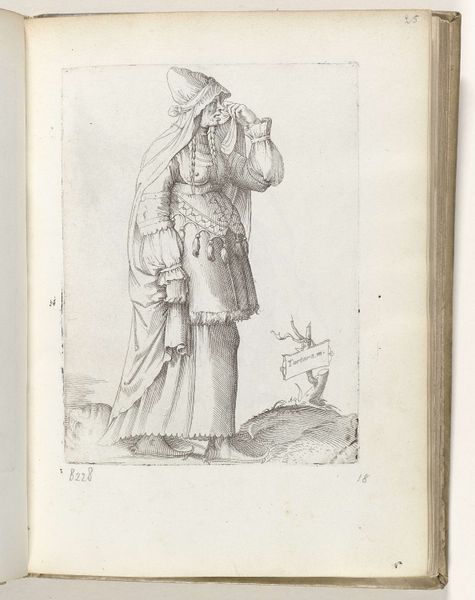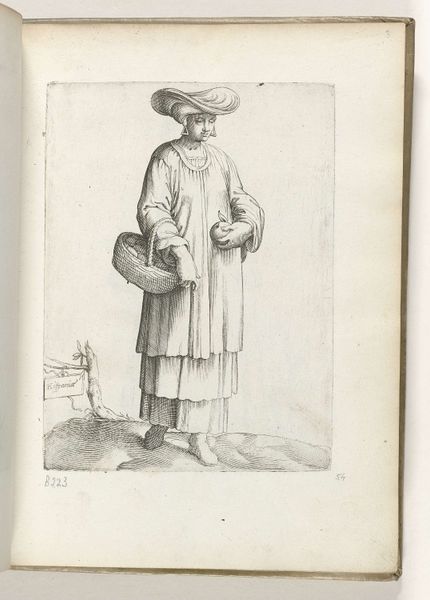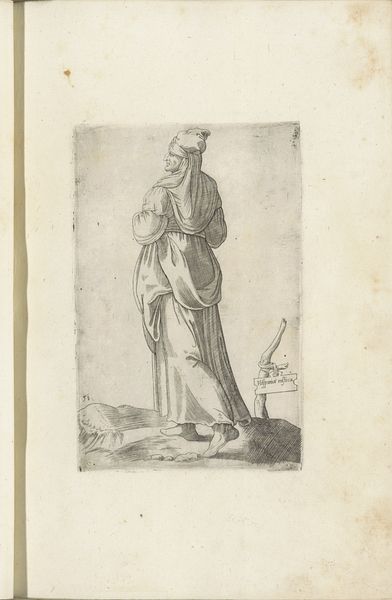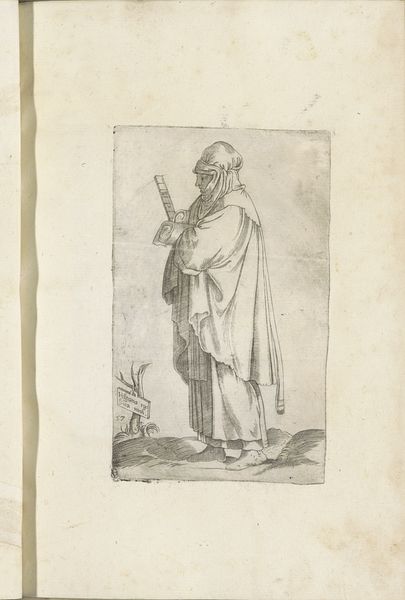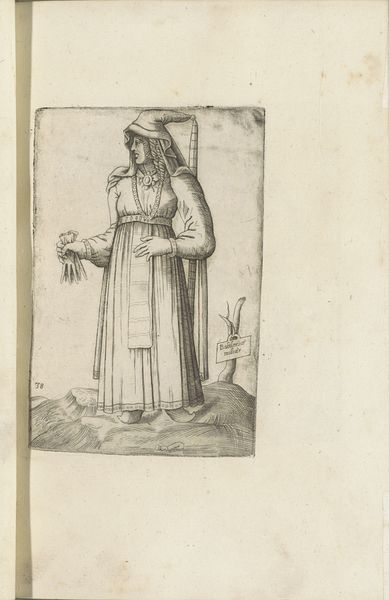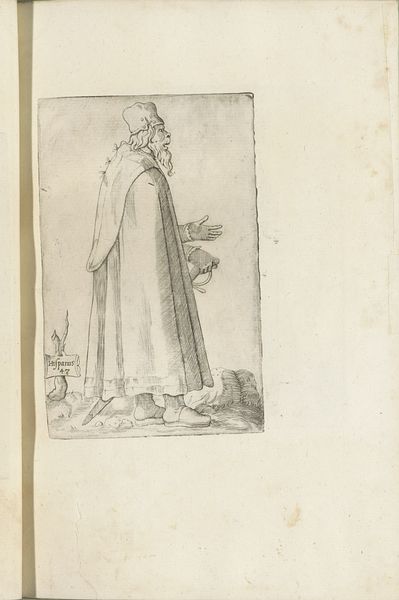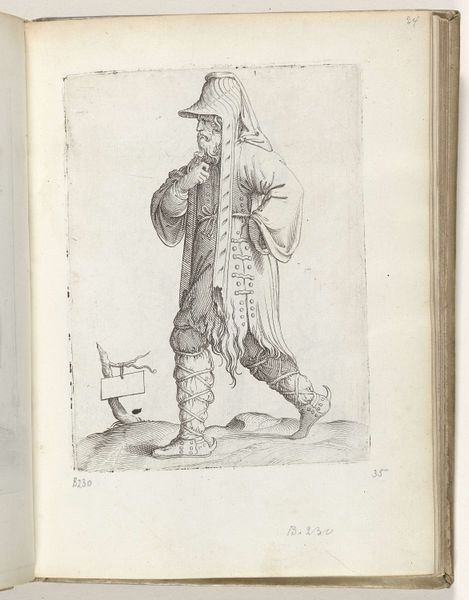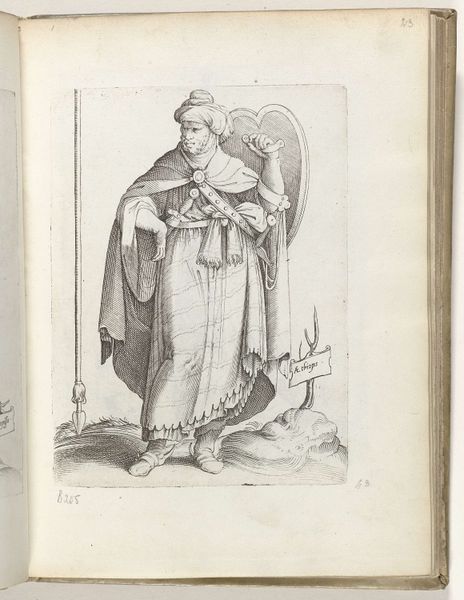
#
toned paper
#
light pencil work
#
pencil sketch
#
sketch book
#
personal sketchbook
#
ink drawing experimentation
#
pen-ink sketch
#
sketchbook drawing
#
watercolour illustration
#
sketchbook art
Dimensions: height 150 mm, width 92 mm
Copyright: Rijks Museum: Open Domain
Editor: Here we have "Afra mulier nupta," a pen and ink sketch by Enea Vico from before 1558, currently housed in the Rijksmuseum. It's a simple image of a woman, likely from antiquity, but something about the directness of the gaze feels modern to me. What strikes you about this work? Curator: What grabs me is precisely that ambiguity – that friction between historical representation and the feeling it evokes in a contemporary viewer. Vico’s choice to depict Afra, seemingly an African woman designated “wife,” during the pre-colonial era forces us to consider issues of race, class and gender roles in early modern Europe. Where did Vico get his reference image? Was it a direct study of a person, or was it filtered through a European lens? Editor: That's a really good question. The inscription on the drawing is quite intriguing. I hadn’t thought of how Vico’s perspective would impact his choices in depicting her. It almost feels anthropological. Curator: Exactly. Consider, too, the act of labeling her “wife.” This immediately places her within a patriarchal framework, defining her by her relationship to a man, regardless of her individual identity. How much agency did Afra really have within this depiction and within her own lived reality? Was she a citizen? Or property? Editor: So, looking at the piece is more about considering those unspoken contextual layers and biases? Curator: Absolutely. Art like this compels us to investigate not just the artwork itself, but the power structures that informed its creation and the ones that dictate how we, in turn, interpret it today. Whose stories get told, and how? Editor: This makes me think about the importance of considering power dynamics that influence everything. I definitely have a new appreciation for approaching artwork with these perspectives. Curator: Precisely. It’s a reminder that art doesn't exist in a vacuum; it is always embedded in social, political, and historical contexts.
Comments
No comments
Be the first to comment and join the conversation on the ultimate creative platform.
